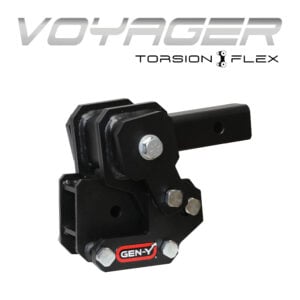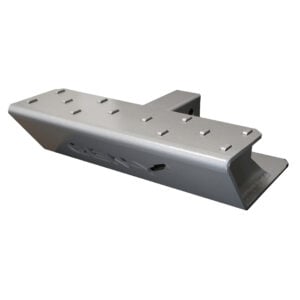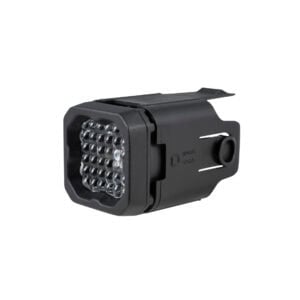When it comes to towing, there’s a hidden hero that often doesn’t get the credit it deserves: tongue weight. It’s the force that keeps your trailer in check, your towing vehicle stable, and your journey safe. Yet, many towing trailers need to be made aware of its importance. This article will illuminate the critical concept of tongue weight and why it matters!
What does tongue weight mean?
Tongue weight, in the world of towing, is the downward force that your trailer applies to the hitch ball at the back of your towing vehicle. Think of it as the weight pressing down on your vehicle’s rear end when your trailer is hooked up. It’s a critical factor to understand because it plays a significant role in how your trailer behaves while you’re on the road.
What happens if the tongue weight is too heavy?
Now, what happens if the tongue weight is too heavy? Well, if you’ve got an excessive amount of tongue weight, it can lead to a series of issues that no one wants to deal with when towing:
-
Poor Handling
When the tongue weight is too heavy, it can cause your towing vehicle’s rear end to sag. This affects the balance of your vehicle and can make it tough to handle, especially when you’re trying to navigate turns or curves.
-
Trailer Sway
Too much weight can also contribute to trailer sway. Imagine your trailer wobbling from side to side behind your vehicle. It’s not only nerve-wracking but also incredibly unsafe. Trailer sway can lead to losing control of your rig and potentially causing an accident.
-
Uneven Tire Wear
Excess tongue weight can cause your towing vehicle’s rear tires to wear unevenly. This means you’ll replace your tires more often; even worse, you might experience a tire blowout on the road.
-
Brake Problems
Heavy tongue weight puts extra strain on your vehicle’s rear brakes. This can lead to premature brake wear and reduced efficiency, especially when descending steep hills.
-
Reduced Traction
With too much weight on the rear axle, the front wheels of your towing vehicle may lose traction. This can seriously impact your ability to steer and handle the rig, especially in slippery or challenging road conditions.
What is a good tongue weight?
What is the sweet spot? The ideal weight generally falls between 10% and 15% of your trailer’s total weight. This percentage provides a good balance for most towing situations. However, checking your trailer’s specifications and recommendations is essential, as the optimal weight can vary depending on the trailer type and intended use.
Choosing the Right Trailer Hitch
So, you’ve got a handle on tongue weight, but what type of trailer hitch do you need? Gen-Y Hitch has you covered with various innovative hitch designs to ensure your towing experience is safe and smooth.
Gen-Y Hitch offers fifth-wheel, and gooseneck hitches for heavier loads and specialized applications. These heavy-duty options, like RVs or livestock trailers, are designed for larger trailers and provide the stability and control needed for safe towing.
In conclusion, tongue weight is crucial in safe and controlled towing, and Gen-Y Hitch offers a range of hitch solutions to help you achieve the perfect balance. So, whether you’re hitting the road for a camping trip or towing heavy loads for work, choosing the right hitch from Gen-Y can make all the difference in your towing experience.
Let Us Help!
Gen-Y Hitch exists to better the lives of our customers, dealers, vendors, employees, and the automotive industry. We will always put our customers’ needs ahead of our own. Contact us today, and let us help you!











